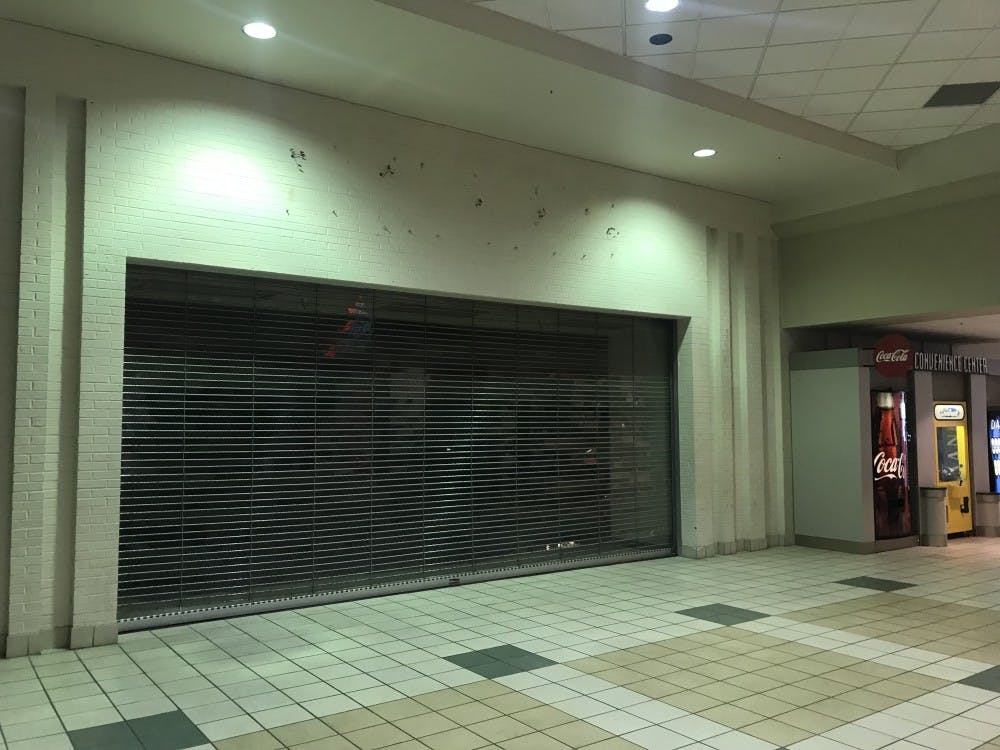Before every home game, a bagpiper leads Cathedral High School football players onto the field from the locker room. However, in its seventh game of the 2008 regular season, things were different.
The Fighting Irish had one of their captains back for their matchup against Moeller High School. Defensive tackle Harold Hogue was set to play his first game of the season after two torn knee ligaments and countless hours of physical therapy sidelined him for the first six games.
After Hogue’s return, Cathedral won every game and defeated Fort Wayne Bishop Dwenger 10-7 in the 2008 Class 4A State Championship game.
Hogue grew up playing football and said sports were a major part of his family. His father, Harold Hogue Sr., played football at Central State University and was a professional wrestler in the now-defunct World Championship Wrestling.
“[My dad] used to always talk about being the first one in the weight room and the last one out — just being the hardest worker even if you didn't have the most talent on the team,” Hogue Jr. said. “He certainly pushed that on [me] at a young age."
Despite Hogue’s success throughout the rest of his senior season, he said his knee injury led to a slower recruitment process. He eventually decided to attend Ball State as a preferred walk-on.
After redshirting his freshman season, Hogue earned a full-ride scholarship and the Scout Team Player of the Year award. He said he made a point to get through the setback with hard work and discipline.
"It's not the sexiest award in the world, but I'm really proud of it," Hogue said. "I came in as a preferred walk-on. I knew I was going to redshirt, I knew I wasn't going to play, but that never stopped the effort I took to practice every day [and] that I took to the weight room every day.”
He graduated college in 2013 with a Bachelor of Science and is currently using his life skills he learned from his football career to run his own Dallas-based business, CoSpero Consulting. According to its website, CoSpero Consulting works with clients ranging from local food pantries to multimillion-dollar entities to help those organizations find ways to help people in need.
Hogue said he sees many similarities between running his own business and playing football, such as looking out for others and prioritizing teamwork.
"We came up with CoSpero, meaning ‘collective hope,’ because the more people that work together, we're going to be a hell of a lot better," Hogue said. "We've got to be a team. You can't win the game with just a quarterback — you've got to have all 11 folks out there. It’s just like that in the social sector."
Despite the parallels he sees between his football career and CoSpero Consulting, Hogue said the path toward his career was unexpected. His mother, Michelle Williams, taught in Indianapolis Public Schools, but Hogue didn’t want to work in education. That changed when he made a trip to Charles A. Tindley Accelerated High School, just a few miles south of Cathedral.
The school opened in 2004 as part of a community-wide revitalization project, sitting in an abandoned building in what was once a crime-ridden neighborhood. When attending Ball State, a Teach For America recruiter convinced Hogue to check out the project. He said he was blown away by its academic excellence.
“In that moment,” Hogue said, “my whole entire life changed because what I realized is it's absolutely possible that education can still be a thing that changes people's lives no matter what ZIP code you are born in, no matter the color of your skin — if we give kids a true shot at a good education.”
Although Hogue didn’t end up working in education, like his mother has for 21 years, she said he found his calling and landed right where he needed to be.
"I always wanted Harold to be kind and give love,” Williams said. “I think that's equally as important as working hard, and perseverance and all those things — just having a kind heart, and a kind spirit and being understanding and empathetic toward everyone."
Visiting Charles A. Tindley Accelerated High School made Hogue consider all the opportunities he had received, which many people close to him never could afford. He thought of how those opportunities could change someone's trajectory, which led him to the vision of CoSpero Consulting. Hogue said he tells his clients from the very start that he views them as family, and doing so has helped him find success.
“There will be days we all show up at 100 percent, but, some days, I might be 100 percent, and you might be at 40 percent,” Hogue said. “We still have got to take care of each other, and that's the same perspective that I bring to our team here in Dallas every day. It's what drives the type of work that I take with our clients.”
More than a decade later, Rick Streiff, former Cathedral High School football head coach and 10-time Indiana State Champion, considers Hogue one of his all-time favorite players. Because of Hogue’s work ethic, he said, he is not surprised to see him achieve great things away from the gridiron.
“He just was incredibly determined to make himself as good as he possibly could be,” Streiff said. “I have a mantra that is, ‘I don’t really know how good my team is going to be until 10 years from now when they’re adults.’ If they are doing great things as adults, we had a pretty darn good team.”
Hogue said while some people might graduate college, find their first job and not quite feel at home, that doesn't mean they’re doing something wrong. He emphasizes networking, learning and pursuing something that will bring joy and happiness.
“If I could give any final words of wisdom to Ball State students, it would be to trust your heart but to make sure that trust is backed up by some core values,” Hogue said. “The desires of your heart might shift, but those core values and principles — you’ve got to have those. If you have those, it'll be a lot easier to follow what your heart is telling you to do.”
Contact Hunter Skillman with comments at hjskillman@bsu.edu or on Twitter at @HunterSkillman1.





